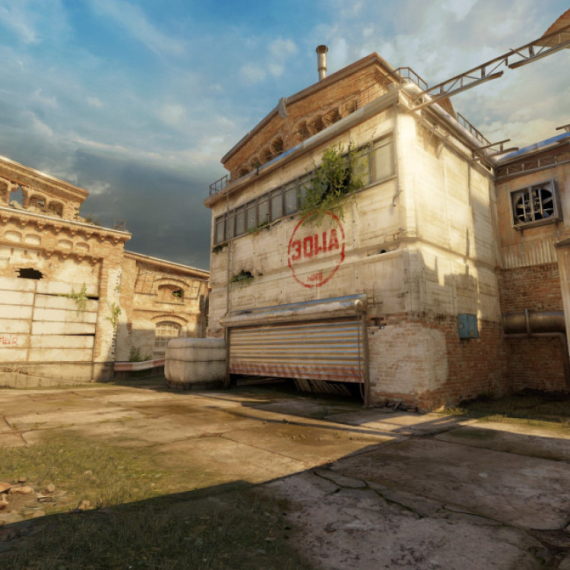PM: Agreement must be implemented
Serbian PM Ivica Dačić stated on Wednesday that the Serbian government would do everything in order to implement the agreement with Priština.
Wednesday, 29.05.2013.
10:54

BELGRADE Serbian PM Ivica Dacic stated on Wednesday that the Serbian government would do everything in order to implement the agreement with Pristina. “The April 19 agreement will be implemented and there is no room for dilemmas here,” he said in his speech before the European Parliament (EP) Foreign Affairs Committee in Brussels. PM: Agreement must be implemented He stressed that Serbia had not recognized Kosovo by reaching the agreement but that it was aware of the situation on the ground. “This is not about forming of some new Republic of Srpska as some claim, this is about a chance to establish security for all communities in Kosovo and Metohija,” the prime minister noted. He commented on reforms implemented by the Serbian government and pointed out that “there is zero tolerance for corruption and organized crime”. “The enlargement process must not stop after Croatia’s accession and Serbia’s accession is necessary for the integration process of the entire Balkans,” Dacic said. He warned that reintroduction of visas for Serbian citizens, that some EU member states advocate, would be a “hard blow” to reforms and the EU integration process. The prime minister received an applause after the speech and many MEPs congratulated him on “political courage” he had shown during the dialogue with Pristina. The MEPs also asked the PM questions about the agreement with Pristina and about relations between Belgrade and Moscow, that according to MEP Eduard Kukan “raise doubts about Serbia’s European orientation”. Dacic pointed out that Serbia had had a centuries-long friendship with Russia but that it also looked for partners in the West. “If you are not present in these parts, someone else will be,” he said and reiterated that some EU member states had closer ties with Russia than Serbia. When asked by EP Rapporteur for Kosovo Ulrike Lunacek why Serbia was blocking Kosovo’s participation in a summit in Ohrid, the Serbian PM said that Serbia had nothing against Pristina’s participation in regional meetings but that clear “rules of the game” for those kinds of situations needed to be determined. European Commission (EC) representative Pierre Mirel said that the EC had already given a recommendation to grant Serbia a date for the beginning of the EU accession negotiations in June but that expected the agreement to be implemented. The Serbian prime minister said after the talks with the MEPs that the EU would grant Serbia a date for the start of the EU accession talks in June which was indicated by “the mood at the meeting of EU foreign ministers and EU High Representatives Catherine Ashton” last Monday. He stressed after a meeting with EP Foreign Affairs Committee Chairman Elmar Brok that it was an indicator that Serbia had a new position in the international politics. According to Dacic, the MEPs fully support granting Serbia the date. He added that the meeting with Brok, a member of the ruling German party, was important because of Berlin’s position. “It is important that there is understanding here and we expect a positive stance from Germany when it comes to a date for the start of the EU accession negotiations,” the prime minister explained. He noted that he would meet with EP President Martin Schultz later on Wednesday, adding that Schultz supported Serbia’s EU integration. Dacic will also meet with EU Enlargement Commissioner Stefan Fule and he had a short conversation with Ashton earlier today. He said that working groups for the implementation of the agreement on normalization of relations between Belgrade and Pristina would start working on Thursday, adding that the issue and political topics of Serbia’s EU integration were discussed at the meeting with Ashton. “The EP’s expanding role in the EU demands that along with member states and the European Commission, you have to keep the EP apprised, especially its Foreign Affairs Committee which is in charge of enlargement and issues and EU’s foreign policy,” Faculty of Political Sciences professor Tanja Miscevic told B92 earlier. “This committee has no power to make any decisions, especially not binding ones but let me remind you – representatives of all member states, different political parties are in there and their countries will finally make a decision, not only on a date (for the start of the EU accession negotiations) but on the further process of the EU enlargement and of course Serbia’s place in it,” she explained. “I would say we are at the moment witnesses of a constant, consistent diplomatic effort that has lasted for a long time because the decision itself is being postponed and it could be a reason. Of course, a diplomatic activity without the essence, and that it the implementation of the agreement that has been reached and the start of the implementation, will not bring too much success,” Miscevic stressed. Ivica Dacic (Beta, file) B92 Beta Tanjug
PM: Agreement must be implemented
He stressed that Serbia had not recognized Kosovo by reaching the agreement but that it was aware of the situation on the ground.“This is not about forming of some new Republic of Srpska as some claim, this is about a chance to establish security for all communities in Kosovo and Metohija,” the prime minister noted.
He commented on reforms implemented by the Serbian government and pointed out that “there is zero tolerance for corruption and organized crime”.
“The enlargement process must not stop after Croatia’s accession and Serbia’s accession is necessary for the integration process of the entire Balkans,” Dačić said.
He warned that reintroduction of visas for Serbian citizens, that some EU member states advocate, would be a “hard blow” to reforms and the EU integration process.
The prime minister received an applause after the speech and many MEPs congratulated him on “political courage” he had shown during the dialogue with Priština.
The MEPs also asked the PM questions about the agreement with Priština and about relations between Belgrade and Moscow, that according to MEP Eduard Kukan “raise doubts about Serbia’s European orientation”.
Dačić pointed out that Serbia had had a centuries-long friendship with Russia but that it also looked for partners in the West.
“If you are not present in these parts, someone else will be,” he said and reiterated that some EU member states had closer ties with Russia than Serbia.
When asked by EP Rapporteur for Kosovo Ulrike Lunacek why Serbia was blocking Kosovo’s participation in a summit in Ohrid, the Serbian PM said that Serbia had nothing against Priština’s participation in regional meetings but that clear “rules of the game” for those kinds of situations needed to be determined.
European Commission (EC) representative Pierre Mirel said that the EC had already given a recommendation to grant Serbia a date for the beginning of the EU accession negotiations in June but that expected the agreement to be implemented.
The Serbian prime minister said after the talks with the MEPs that the EU would grant Serbia a date for the start of the EU accession talks in June which was indicated by “the mood at the meeting of EU foreign ministers and EU High Representatives Catherine Ashton” last Monday.
He stressed after a meeting with EP Foreign Affairs Committee Chairman Elmar Brok that it was an indicator that Serbia had a new position in the international politics.
According to Dačić, the MEPs fully support granting Serbia the date. He added that the meeting with Brok, a member of the ruling German party, was important because of Berlin’s position.
“It is important that there is understanding here and we expect a positive stance from Germany when it comes to a date for the start of the EU accession negotiations,” the prime minister explained.
He noted that he would meet with EP President Martin Schultz later on Wednesday, adding that Schultz supported Serbia’s EU integration.
Dačić will also meet with EU Enlargement Commissioner Stefan Fule and he had a short conversation with Ashton earlier today.
He said that working groups for the implementation of the agreement on normalization of relations between Belgrade and Priština would start working on Thursday, adding that the issue and political topics of Serbia’s EU integration were discussed at the meeting with Ashton.
“The EP’s expanding role in the EU demands that along with member states and the European Commission, you have to keep the EP apprised, especially its Foreign Affairs Committee which is in charge of enlargement and issues and EU’s foreign policy,” Faculty of Political Sciences professor Tanja Miščević told B92 earlier.
“This committee has no power to make any decisions, especially not binding ones but let me remind you – representatives of all member states, different political parties are in there and their countries will finally make a decision, not only on a date (for the start of the EU accession negotiations) but on the further process of the EU enlargement and of course Serbia’s place in it,” she explained.
“I would say we are at the moment witnesses of a constant, consistent diplomatic effort that has lasted for a long time because the decision itself is being postponed and it could be a reason. Of course, a diplomatic activity without the essence, and that it the implementation of the agreement that has been reached and the start of the implementation, will not bring too much success,” Miščević stressed.





















































Komentari 4
Pogledaj komentare